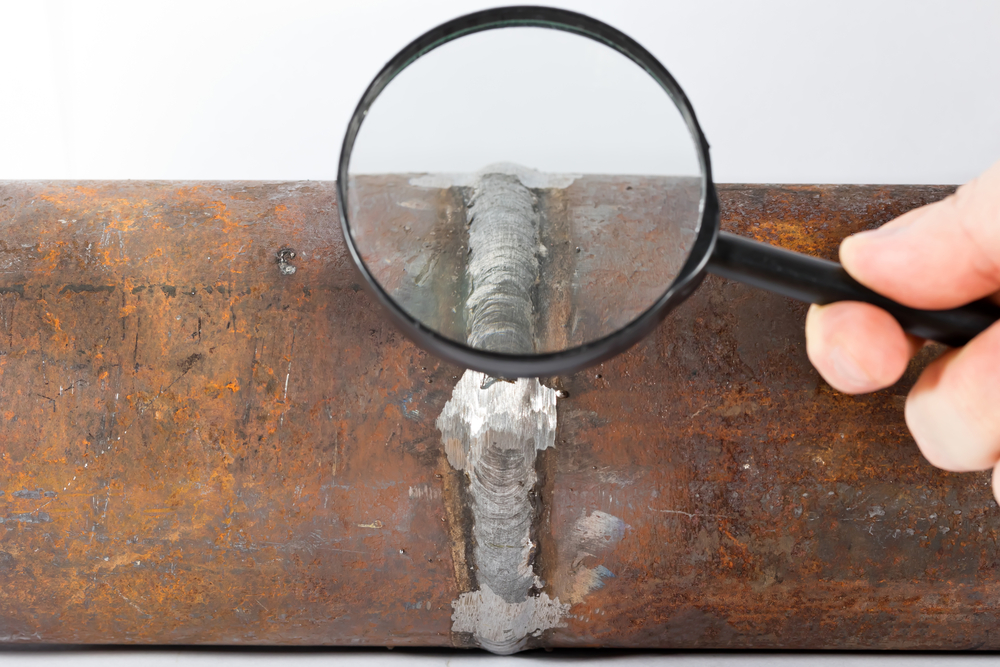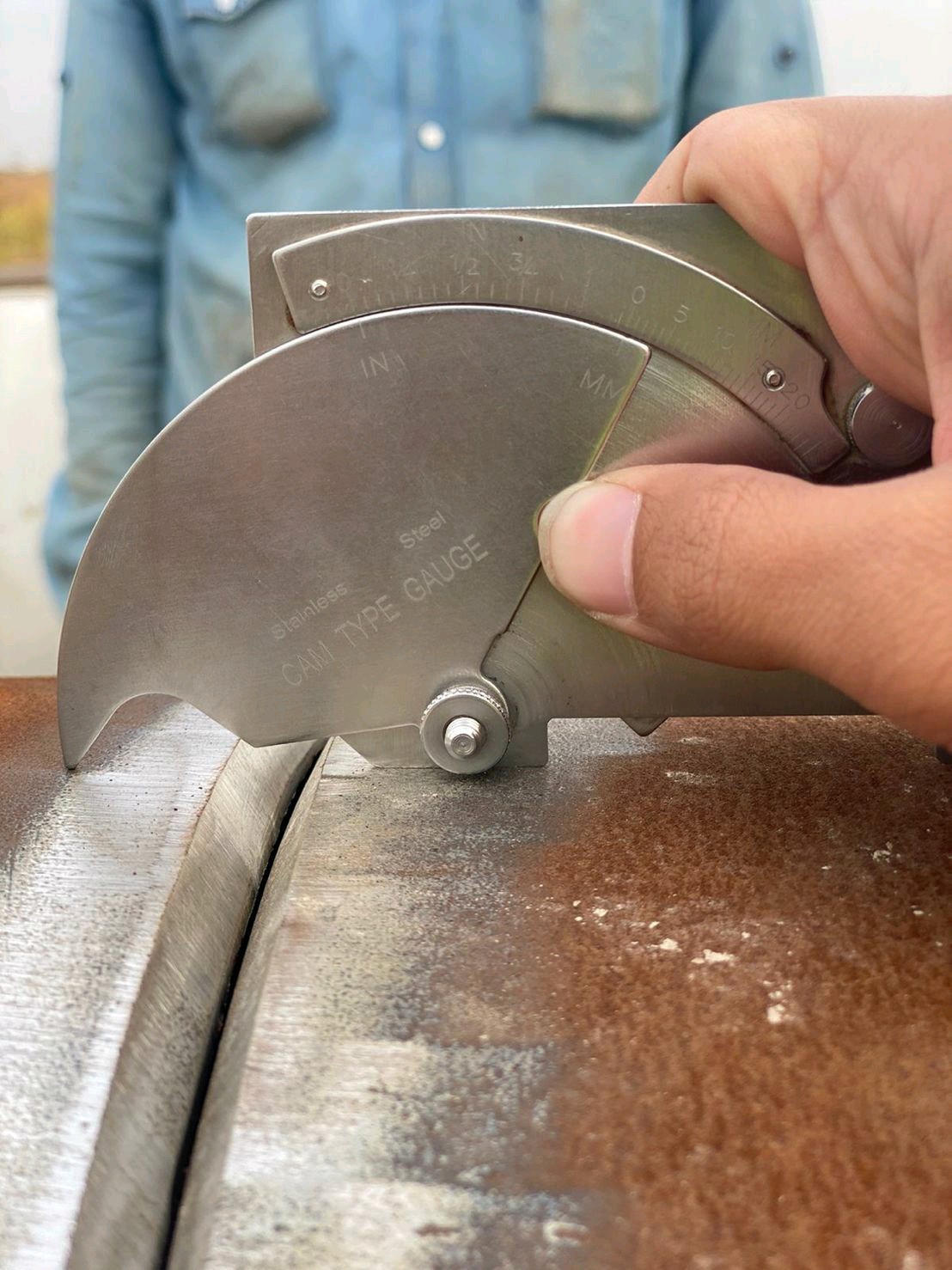Why Choose Specialist Welding Inspection Madison for Your Jobs
Why Choose Specialist Welding Inspection Madison for Your Jobs
Blog Article
The Value of Thorough Welding Examination in Industrial Applications
In the realm of commercial applications, the significance of thorough welding assessment can not be overemphasized. It plays a crucial duty in ensuring the structural honesty and longevity of bonded elements. Advanced non-destructive testing strategies allow for the very early detection of possible problems, such as fractures and insufficient combination, which, if left unchecked, can lead to tragic failings. Additionally, adherence to strict industry standards not just guarantees quality yet likewise develops client self-confidence. As we discover the multifaceted advantages of thorough welding assessments, one have to take into consideration the more comprehensive ramifications on safety, reliability, and cost-effectiveness in commercial procedures.
Enhancing Architectural Integrity
When it comes to welding evaluation in industrial applications, enhancing architectural integrity is paramount. The primary goal of welding inspection is to make sure that the welds are capable of bearing the expected anxieties and tons they will certainly experience in service.
The importance of keeping architectural integrity in welded structures can not be overemphasized. Badly carried out welds can lead to devastating failings, resulting in expensive repairs, downtime, and also endangerment of human lives. Assessors play a crucial role in the lifecycle of industrial parts, giving guarantee that the welding procedure provides the preferred strength and longevity.
Additionally, advanced innovations, such as phased array ultrasonic screening and digital radiography, offer boosted capacities in discovering prospective weaknesses, permitting rehabilitative procedures before problems intensify. By prioritizing the stability of welds via precise examination, markets can guarantee operational performance and extend the longevity of their framework.
Determining Welding Flaws
Determining welding flaws is a critical element of ensuring the security and integrity of bonded frameworks. Typical welding flaws consist of porosity, cracks, incomplete fusion, and undercutting.

Experienced examiners make use of both aesthetic exam and progressed non-destructive screening (NDT) techniques, such as ultrasonic or radiographic screening, to identify these problems. The timely recognition and correction of welding defects are crucial to keep the structural integrity and durability of industrial parts.
Making Sure Compliance Criteria
Compliance with recognized standards, such as those supplied by the American Welding Culture (AWS) and the International Organization for Standardization (ISO), guarantees that welds satisfy minimum safety and top quality requirements. These requirements encompass a broad variety of criteria, including product specs, welding procedures, and qualification of welders.
Regular Welding Inspection Madison audits and evaluations are important in verifying compliance. Assessors have to have an extensive understanding of the pertinent requirements and be adept at using different non-destructive testing (NDT) methods to examine weld quality. By making certain that welding techniques straighten with compliance standards, firms alleviate the risk of non-conformity, which can bring about legal liabilities and safety dangers.
Additionally, preserving compliance not only safeguards structural integrity but additionally enhances a company's track record in the sector. Stakeholders and customers are more most likely to count on firms that constantly show a commitment to quality and safety with rigorous compliance. Hence, making certain conformity requirements is a critical element in the effective implementation of welding in commercial applications.
Minimizing Upkeep Expenses

The application of innovative non-destructive testing (NDT) methods, including ultrasonic, radiographic, and magnetic fragment inspections, improves reference the ability to discover subsurface problems without compromising the structural honesty of parts. By utilizing these strategies, sectors can considerably prolong the life span of their tools, decreasing downtime and the linked economic worry of maintenance activities.
Furthermore, a durable welding assessment routine supports the optimization of upkeep timetables, moving from reactive to anticipating upkeep methods. This positive approach not just curtails unexpected failures however additionally streamlines resource allocation, making certain that upkeep efforts are focused and reliable. Inevitably, the investment in extensive welding evaluation is offset by the considerable savings recognized with lowered maintenance needs, contributing favorably to the total operational effectiveness of industrial ventures.
Improving Precaution
Welding evaluation plays a crucial duty in this context, as it ensures that all joints and links fulfill stringent security criteria. Comprehensive examinations aid determine issues such as splits, porosity, or incomplete fusion that might endanger structural stability.
Methods like ultrasonic screening, radiographic screening, and magnetic bit inspection enable for comprehensive examination without harming the framework. Carrying out a robust top quality control system that includes normal click now training for welders and examiners guarantees adherence to developed safety and security criteria.
Finally, fostering a society of security within the company stresses the significance of complete welding assessments. Motivating open communication and partnership among welders, inspectors, and designers adds to a common dedication to security excellence. Welding Inspection Madison. In doing so, markets can safeguard their operations, secure employees, and keep public trust

Verdict
Complete welding examination is indispensable in commercial applications, dramatically improving structural honesty and dependability. Inevitably, the diligent implementation of welding evaluations plays a critical function in maintaining functional efficiency and security in industrial settings.
As we explore the diverse benefits of attentive welding examinations, one need to take into consideration the wider implications on safety and security, dependability, and cost-effectiveness in industrial procedures.
The main objective of welding evaluation is to make sure that the welds are qualified of bearing the anticipated loads and anxieties they will certainly run into in service. Effective welding inspection plays an indispensable role in decreasing these prices by ensuring the stability and durability of welds, consequently reducing the risk of early failings.Complete welding examination is indispensable in industrial applications, significantly improving structural honesty and integrity. Inevitably, the diligent implementation of welding assessments plays a critical role in keeping operational effectiveness and safety in commercial settings.
Report this page